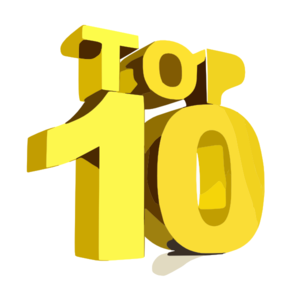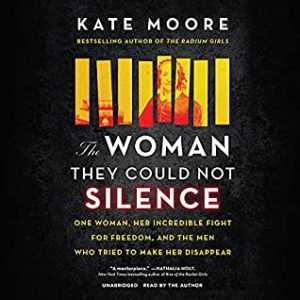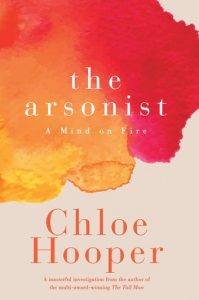I’m over at Dear Author with My Top 10 list of 2022 – plus a non-fiction bonus book just because. I’d love to hear from readers what books made their own best of lists.
Tag: non-fiction (Page 1 of 2)
Monthly Mini Review
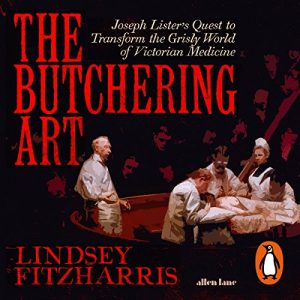 The Butchering Art by Lindsey Fitzharris, narrated by Sam Woolf – A I listen to the Noble Blood podcast (recommend!) and recently, host Dana Schwarz interviewed Lindsey Fitzharris about her new book, The Facemaker (also on my TBL). She mentioned her debut (The Butchering Art) and I decided to start there as I’ve long had an interest in non-fiction about the history of science, disease and medicine. The Butchering Art tells the story of Joseph Lister, the Victorian surgeon who introduced antiseptic techniques to surgery and saved countless lives by doing so. At seven and a half hours, it is not an exhaustive biography, nor is it intended to be. Rather, as the author said in her recent interview, she distills the information so the finished product reads like narrative fiction. This book was infinitely interesting to me. I was hooked from the start and stayed that way; I was not bored for a single second. In fact, if anything, I was left wanting more.
The Butchering Art by Lindsey Fitzharris, narrated by Sam Woolf – A I listen to the Noble Blood podcast (recommend!) and recently, host Dana Schwarz interviewed Lindsey Fitzharris about her new book, The Facemaker (also on my TBL). She mentioned her debut (The Butchering Art) and I decided to start there as I’ve long had an interest in non-fiction about the history of science, disease and medicine. The Butchering Art tells the story of Joseph Lister, the Victorian surgeon who introduced antiseptic techniques to surgery and saved countless lives by doing so. At seven and a half hours, it is not an exhaustive biography, nor is it intended to be. Rather, as the author said in her recent interview, she distills the information so the finished product reads like narrative fiction. This book was infinitely interesting to me. I was hooked from the start and stayed that way; I was not bored for a single second. In fact, if anything, I was left wanting more.
The narration is excellent. Mr. Woolf gives character voices to speakers just like in narrative fiction and delivers the story with similar tone and expression. The combination of story and narration was a perfect pairing. It’s all true and it’s all fascinating. Continue reading
I’m over at Dear Author with a review of The Woman They Could Not Silence by Kate Moore. Fascinating true story of one woman’s fight for freedom from an asylum and from the control of her husband in the 1860s.
Monthly Mini Review
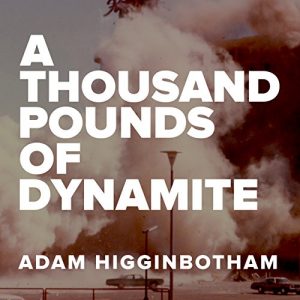 A Thousand Pounds of Dynamite by Adam Higginbotham – B When I was buying Higginbotham’s audiobook on Chernobyl, I saw there was a short (just about 2.5 hours) audio by the same author. The author reads the story, which was originally a longform article for The Atavist (which I’d not heard of before). Then Audible had a sale and I picked it up at 50% off – about $3.00. A Thousand Pounds of Dynamite tells the true story of Big John Burgis, who tried to extort $US 3 million from a casino in Lake Tahoe in 1980. He stole a thousand pounds of dynamite and made a bomb in his shed, delivered it to the casino and threatened to blow everything up if the money wasn’t delivered to him. The story is extraordinary and all the more interesting because I’d never heard of it before. I gather that folks in Lake Tahoe still remember it and that current FBI trainers use the case as a teaching tool but the story hasn’t really sunk into the collective consciousness. Continue reading
A Thousand Pounds of Dynamite by Adam Higginbotham – B When I was buying Higginbotham’s audiobook on Chernobyl, I saw there was a short (just about 2.5 hours) audio by the same author. The author reads the story, which was originally a longform article for The Atavist (which I’d not heard of before). Then Audible had a sale and I picked it up at 50% off – about $3.00. A Thousand Pounds of Dynamite tells the true story of Big John Burgis, who tried to extort $US 3 million from a casino in Lake Tahoe in 1980. He stole a thousand pounds of dynamite and made a bomb in his shed, delivered it to the casino and threatened to blow everything up if the money wasn’t delivered to him. The story is extraordinary and all the more interesting because I’d never heard of it before. I gather that folks in Lake Tahoe still remember it and that current FBI trainers use the case as a teaching tool but the story hasn’t really sunk into the collective consciousness. Continue reading
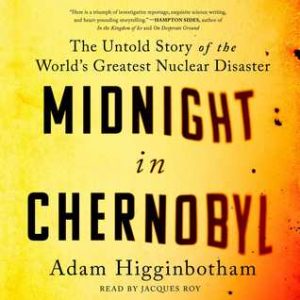 Why I read it: I’m fascinated by this stuff and @JenReadsRomance recommended it to me (thank you Jen!). I tend to only be able to carve out time for non-fiction on audio so I bought the audiobook.
Why I read it: I’m fascinated by this stuff and @JenReadsRomance recommended it to me (thank you Jen!). I tend to only be able to carve out time for non-fiction on audio so I bought the audiobook.
What it’s about: (from Goodreads) The definitive, dramatic untold story of the Chernobyl nuclear power plant disaster, based on original reporting and new archival research.
April 25, 1986, in Chernobyl, was a turning point in world history. The disaster not only changed the world’s perception of nuclear power and the science that spawned it, but also our understanding of the planet’s delicate ecology. With the images of the abandoned homes and playgrounds beyond the barbed wire of the 30-kilometer Exclusion Zone, the rusting graveyards of contaminated trucks and helicopters, the farmland lashed with black rain, the event fixed for all time the notion of radiation as an invisible killer.
Chernobyl was also a key event in the destruction of the Soviet Union, and, with it, the United States’ victory in the Cold War. For Moscow, it was a political and financial catastrophe as much as an environmental and scientific one. With a total cost of 18 billion rubles—at the time equivalent to $18 billion—Chernobyl bankrupted an already teetering economy and revealed to its population a state built upon a pillar of lies.
The full story of the events that started that night in the control room of Reactor No.4 of the V.I. Lenin Nuclear Power Plant has never been told—until now. Through two decades of reporting, new archival information, and firsthand interviews with witnesses, journalist Adam Higginbotham tells the full dramatic story, including Alexander Akimov and Anatoli Dyatlov, who represented the best and worst of Soviet life; denizens of a vanished world of secret policemen, internal passports, food lines, and heroic self-sacrifice for the Motherland. Midnight in Chernobyl, award-worthy nonfiction that reads like sci-fi, shows not only the final epic struggle of a dying empire but also the story of individual heroism and desperate, ingenious technical improvisation joining forces against a new kind of enemy.
What worked for me (and what didn’t): I’m not a scientist and never studied physics in school, apart from what one does in general science. I know about atoms and such but nuclear fission is not something I’d ever taken a deep dive into.
Fortunately, one doesn’t have to have special knowledge to understand the book. The author does a great job of explaining what happened and the science behind it. That said, the science, while accessible, is dense. Unlike other books, I found myself having to concentrate on just about every word and I was often skipping back to relisten to a couple of sentences to be sure I understood. It was one of those books where I figured if I didn’t understand now, I’d get lost later on. Continue reading
I’m over at Dear Author with a review of The Arsonist A Mind on Fire by Chloe Hooper, narrated by Sybilla Budd. Powerful and sympathetic rendering of the aftermath of one of the bushfires which raged in Victoria on February 7 2009 – a day which became known as Black Saturday.
